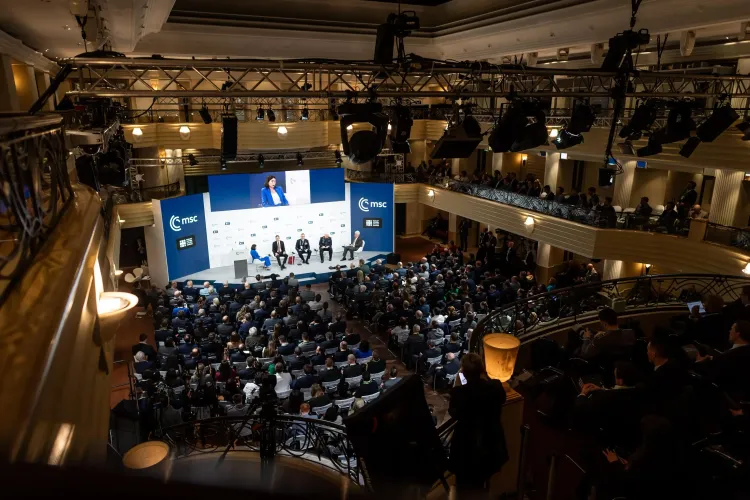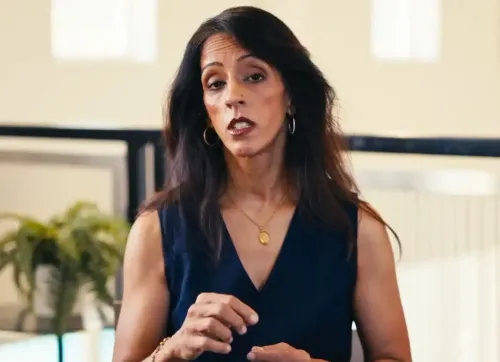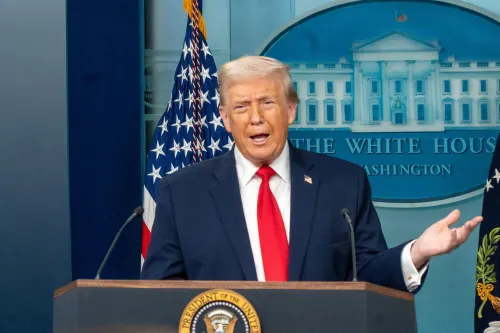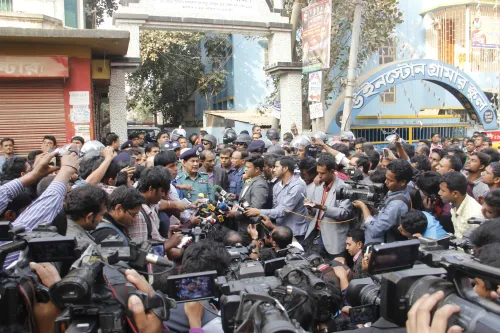Munich Security Conference Commences Amidst Challenging Geopolitical Climate

Synopsis
Key Takeaways
- 61st Munich Security Conference launched amid complex geopolitical landscape.
- Global dialogue is essential to tackle security threats.
- Concerns over US administration's worldview and its impact on international relations.
- Multipolarization presents both opportunities and challenges.
- Global South nations play a key role in shaping inclusive multipolarity.
Munich, Feb 14 (NationPress) The 61st Munich Security Conference (MSC) commenced on Friday, uniting policymakers and experts to address urgent global security issues in the context of the rising trend of multipolarity and a challenging geopolitical environment.
This year's MSC is particularly significant, coinciding with the launch of a new US administration, the appointment of a new European Commission, and the forthcoming German federal elections, as noted by the organizers. These developments could greatly influence international relations.
During the opening ceremony, Christoph Heusgen, Chairman of the MSC, emphasized the crucial need for a global dialogue to confront security threats in areas such as climate change, cybersecurity, and artificial intelligence, aiming for stability.
Heusgen remarked, "We require dialogue more than ever," pointing out the unprecedented number of ongoing conflicts, including those in Ukraine and Sudan.
In his speech, German President Frank-Walter Steinmeier reaffirmed Germany's dedication to multilateral foreign and security strategies, expressing apprehensions regarding shifts in international relations over the next four years.
Steinmeier highlighted that the new US administration possesses a perspective that neglects established rules, partnerships, and trust. Even though this reality cannot be altered, it must be recognized and addressed, he stated. "However, I believe it is not in the interest of the international community to adopt a solitary dominant paradigm."
A report released prior to the MSC, titled Multipolarization, underscored the ongoing evolution of the international system towards a more multipolar world—a transition that brings both opportunities and challenges, as reported by Xinhua news agency.
While the degree of multipolarity remains debatable, the report confirms that this trend is an established fact and suggests it could gain momentum with the potential return of US President Donald Trump. Nevertheless, it cautions that rising divisions and the threat of disorder could jeopardize collective endeavors to tackle global crises and security challenges.
The report designates nations from the Global South as possible catalysts in constructing a more inclusive multipolar framework. According to MSC organizers, over 30 percent of speakers at this year's conference will represent these nations, ensuring their perspectives are included in discussions on the developing multipolar landscape.
The three-day event assembles approximately 60 heads of state and government, 150 ministers, and leaders of major international organizations. Key issues on the agenda consist of global governance, climate security, and regional conflicts and crises. The future of the transatlantic relationship, especially concerning Trump's anticipated return, will also be deliberated.










